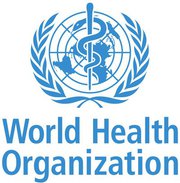
The Albino Foundation Public Notice
As the world marks World Obesity Day today the World Health Organisation, WHO, has warned that Africa is facing a growing problem of obesity and overweight, saying that the trends are on the rise.
In its new analysis, WHO revealed that One in five adults and one in 10 children and teenagers are projected to be obese by December 2023 in 10 high-burden African countries if no robust measures are taken to reverse the trends.
Remarking on the development, WHO Regional Director for Africa, Dr Matshidiso Moeti described it as a ticking time bomb. “If unchecked, millions of people, including children, risk living shorter lives under the burden of poor health,” she warned.
She said the obesity crisis can be resolved because many of the causes of obesity and overweight are preventable and reversible.
The WHO analysis finds that the prevalence of obesity among adults in the 10 high-burden countries will range from 13.6 percent to 31 percent, while in children and adolescents it will range from 5 percent to 16.5 percent. It found that Africa also faces a growing problem of overweight in children.
“In 2019, the continent was home to 24 percent of the world’s overweight children aged under 5,”the report noted.
Overweight has been associated with severe disease and the need for hospitalization with COVID-19.
While no data is available yet for Africa, a study published by the Journal of Infection and Public Health found that of the 2.5 million COVID-19 deaths reported globally by the end of February 2021, 2.2 million were in countries where more than half the population is classified as overweight.
This year’s World Obesity Day theme is: “Everybody Needs to Act”.
Moeti explained that dietary habits such as consuming energy-dense foods, sedentary lifestyles or lack of physical activity associated with rising urbanisation or changing modes of transport in many countries are significant drivers of obesity.
“Lack of strong policies in key sectors including health, agriculture, urban planning and environment to support healthier lifestyles also contributes to growing obesity and overweight in many countries.”
To combat obesity and overweight, WHO recommended a range of priority measures including government regulations such as mandatory limits on food sugar content; fiscal policies, for example, taxing sugar-sweetened beverages; food marketing regulations such as obligatory nutrient declaration by manufacturers; promoting healthier foods for older infants and young children; creating facilities for safe, active transport and recreation as well as reinforcing public health services.
Through a global initiative supported by WHO, the International Development Law Organization, the International Development Research Centre and the Swiss Development Cooperation, Kenya, Tanzania and Uganda are being supported to develop and implement regulatory standards and fiscal measures to promote healthy diets and physical activity.
In 2022, WHO will work with 10 more high-burden African countries for accelerated obesity reduction initiatives.
The report further warned that being obese or overweight raises the risk of suffering cardiovascular diseases, diabetes, muscle and skeletal disorders as well some types of cancer.
“Among children, being overweight is associated with a higher chance of obesity, premature death and disability in adulthood.
“Lowering the risk of overweight and obesity includes adopting a healthy diet such as reducing the number of calories consumed in fats and sugars, undertaking regular physical activity as well as government policies that help people opt for healthier lifestyles and diets, for instance, by ensuring that healthy foods are accessible and affordable,” WHO report stated.
Vanguard



